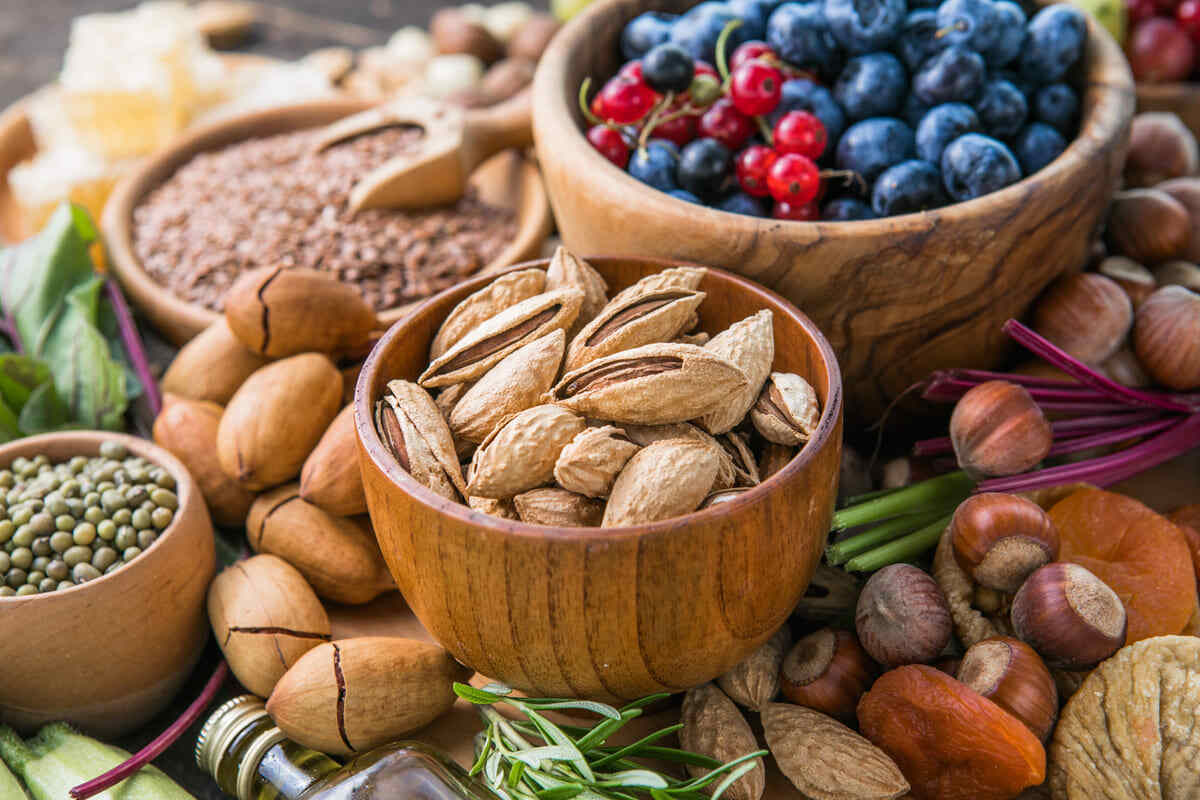In recent years, the topic of GMOs (genetically modified organisms) has sparked lively debates and raised concerns about their potential impacts on health and the environment. While GMOs have made their way into many aspects of our food supply, including pet treats, examining their potential risks, particularly concerning our furry companions, is crucial.
Join us as we uncover the hidden dangers of GMO pet treats and explore why opting for natural alternatives may be the way to go for the well-being of our beloved pets.
Understanding GMOs and Their Use in Pet Treats
GMOs are widely present in various sectors, including the pet food industry. Genetic engineering techniques alter an organism’s DNA and introduce desired traits. These modifications can include increased pest resistance, improved nutritional profiles, and enhanced characteristics like taste, texture, and shelf life.
In pet treats, GMO ingredients are often used to enhance these desirable attributes. For example, genetically modified crops like corn or soybeans can be engineered to resist pests, reducing the need for chemical pesticides during cultivation. This resistance can lead to higher crop yields and lower production costs, which may be appealing to pet treat manufacturers.
Moreover, genetic modification can enhance the nutritional value of pet treats. By introducing specific genes, GMO ingredients may contain elevated levels of certain nutrients such as vitamins or essential fatty acids. This can be advantageous for pets with specific dietary requirements or those needing additional nutritional support.
Additionally, genetic modifications can improve the texture of treats, making them more appealing to pets and potentially increasing consumer satisfaction. GMO ingredients may also extend the product’s shelf life, reducing the risk of spoilage and allowing for a longer duration during which the treats can be consumed.
While the potential benefits of GMO pet treats may seem promising, you must consider their potential risks and dangers. Understanding the concerns surrounding GMOs will allow you to make well-informed choices about the treats you offer to your beloved companions.
Hidden Dangers of GMO Pet Treats
Pet treats are an integral part of the lives of our furry companions, providing them with happiness and a sense of reward. However, pet parents must be aware of a potential danger lurking within these treats: GMOs.
These organisms have undergone genetic modifications through engineering techniques, and they carry potential risks that may impact the health and well-being of our pets.
As we delve into the hidden dangers associated with GMO pet treats, it becomes essential to explore the concerns surrounding these products and make informed decisions to ensure the safety and welfare of our furry friends.
GMO Allergenic Reactions

One of the key concerns related to GMO pet treats revolves around the potential for allergenic reactions. When genetic modification occurs, new proteins can be introduced into the food, potentially triggering allergic responses in sensitive animals.
Identifying the specific allergens in GMO pet treats can be complex, posing challenges for pet owners seeking to avoid ingredients that may elicit adverse reactions. That’s why it’s vital to be aware of these potential allergenic risks and take appropriate measures to ensure the well-being of your pets.
Unknown Long-Term Effects of GMOs
The long-term health effects of consuming GMOs in pet treats remain uncertain. Currently, limited research is available regarding GMOs’ impact on animal health. This lack of extensive studies leaves pet owners with little knowledge about the potential risks of long-term exposure to genetically modified ingredients.
As a result, there is ongoing uncertainty regarding the long-term effects of GMOs in pet treats, emphasizing the need for further research and consideration of potential risks.
Pesticide Residues
GMO crops are frequently designed with traits that resist herbicides and pesticides. As a result, GMO pet treats derived from these crops may contain higher levels of chemical residues. Prolonged exposure to these residues can pose health risks to pets, such as digestive issues, organ damage, and even an increased risk of certain health conditions like cancer.
Environmental Concerns
The cultivation of GMO crops can have adverse effects on the environment. The widespread use of GMO crops often entails the extensive application of pesticides, leading to water source contamination and negatively impacting local ecosystems.
By choosing natural pet treats, you can support sustainable and eco-friendly practices. Opting for natural treats encourages using ingredients sourced from environmentally conscious suppliers and promotes the reduction of pesticide usage, thus minimizing the environmental damage associated with GMO crop cultivation.
Loss of Biodiversity

The widespread cultivation of genetically modified food crops can impact biodiversity. Monocultures, which involve the extensive cultivation of a single genetically modified crop in large areas, can result in the displacement of native plant species and a reduction in crop diversity within a region.
This loss of biodiversity can adversely affect ecosystem resilience and the long-term sustainability of agricultural systems. That’s why it’s vital to consider the potential consequences of monocultures and their impact on biodiversity when evaluating the broader implications of genetically modified crop cultivation.
Contamination and Cross-Pollination
Genetically modified crops can undergo cross-pollination with non-genetically modified crops or wild relatives, resulting in genetic contamination. This contamination can occur naturally through wind, insects, or unintentional human actions, challenging preserving the purity of non-genetically modified or organic crops.
Moreover, genetic contamination can affect farmers who aim to cultivate non-GMO crops or preserve traditional seed varieties.
Socioeconomic Concerns
Adopting genetically modified crops raises socioeconomic considerations, especially for small-scale farmers. Genetically modified seeds are frequently patented and controlled by a handful of large corporations, limiting farmers’ choices and increasing their reliance on these companies.
This dependency can result in higher costs for farmers and diminish their autonomy regarding seed selection and farming practices.
Consumer Choice and Labeling
The transparency and labeling of genetically modified foods are topics of ongoing debate. Many consumers prioritize making informed choices about the products they purchase and consume, including knowing whether they contain GMOs.
However, the regulations regarding GMO labeling vary across countries, leading to inconsistencies in the availability and clarity of such information. This can present challenges for consumers who wish to make well-informed decisions about the foods they buy.
Why Natural Treats Are a Safer Choice
Recently, people have paid more attention to natural treats as a safer option for their pets. These treats are crafted with minimal processing and prioritize using wholesome ingredients, excluding artificial additives, preservatives, and genetically modified organisms.
This focus on natural ingredients and minimal processing has led numerous pet owners to consider natural treats a safer alternative, free from hidden dangers and health risks linked to synthetic ingredients. By opting for natural treats, you can offer your pets treats aligning with your commitment to their well-being.
Transparency and Traceability
Natural pet food manufacturers prioritize minimally processed ingredients free from genetic modification. This emphasis on transparency gives pet owners a clearer picture of where the ingredients come from and how they are produced.
With clear labeling and ingredient lists, you can make informed decisions about the treats you provide to your pets, knowing the origin and quality of their ingredients.
Nutritional Value

Natural pet treats prioritize whole, nutrient-rich ingredients without genetic modification. These treats can provide essential vitamins, minerals, and antioxidants that contribute to pets’ overall health and well-being. By avoiding genetically modified ingredients, you can focus on nourishing your pets with wholesome, natural ingredients that support their nutritional needs.
No Artificial Additives
Natural treats steer clear of artificial colors, flavors, and preservatives that may be present in processed treats. Artificial additives can adversely affect pets, including allergic reactions or digestive issues. That said, pet owners can minimize the risk of adverse reactions to these additives by opting for natural treats.
Healthy Digestive System
Natural treats focus on high-quality, minimally processed ingredients that promote better digestive health for pets. These treats are less likely to contain artificial fillers, excessive carbohydrates, or components that may be difficult to digest. Prioritizing digestive health, natural treats contribute to a healthy gastrointestinal system for pets.
Reduced Allergenic Risks
Genetically modified ingredients may introduce new proteins into pet treats, which can trigger allergic reactions in sensitive animals. By choosing natural treats without genetically modified ingredients, you can reduce the risk of allergic reactions.
Clear labeling and ingredient lists allow pet owners to identify potential allergens and make choices based on their pet’s dietary needs, minimizing the risk of adverse reactions.
Supporting Local and Sustainable Agriculture
Opting for natural treats promotes local and sustainable agricultural practices. These treats often emphasize using non-GMO crops and reduce reliance on synthetic pesticides. By supporting local and sustainable agriculture, you contribute to the environment’s well-being.
How to Avoid GMOs in Pet Treats?
If you’re concerned about GMOs in pet treats, there are steps you can take to navigate the selection process. By being proactive and mindful, you can make choices that align with your preferences and promote the well-being of your pets.
That said, here are several practical tips and suggestions on how to avoid GMOs in pet treats:
- Look for organic certification: To avoid GMOs in pet treats, choose products that have organic certification. These certifications indicate that the treats meet stringent standards, excluding GMO ingredients. Opting for treats with organic certification can give pet owners confidence in their organic and non-GMO status, aligning with their preferences for natural and wholesome options.
- Read ingredient labels: Examine pet treat packaging for ingredient labels and consider commonly genetically modified ingredients like corn, soy, canola, and sugar beets. If these ingredients are listed, consider alternative treats without GMOs.
- Choose non-GMO verified products: Seek pet treats displaying the “Non-GMO Project Verified” seal. This verification ensures the product has been tested to verify its GMO-free status, offering additional reassurance.
- Support transparent brands: Look for pet treat brands emphasizing transparency in sourcing and production. Some brands openly advertise their GMO-free products or provide information about their commitment to non-GMO ingredients. Supporting such brands allows you to align your preferences with companies that value transparency and non-GMO practices.
- Consider single-ingredient treats: Simplify your quest for GMO-free treats by selecting single-ingredient options. These treats typically contain only one ingredient, minimizing the chances of GMOs being present.
- Explore homemade options: Take control of your pet’s treat ingredients by preparing homemade treats using organic and non-GMO ingredients. Numerous online resources offer natural and wholesome recipes, ensuring you have complete control over what goes into your pet’s snacks.
- Contact pet treat manufacturers: If you’re worried about GMOs in specific pet treat brands, contact the manufacturers directly. Inquire about their sourcing practices and use of genetically modified ingredients. Direct communication with manufacturers can give you more information to choose what suits your pet.
- Stay informed: Staying informed about news and developments related to GMOs in the pet food industry is essential. Keep up-to-date with changes in regulations, advancements in testing methods, and evolving perspectives on GMOs. This will empower you to make educated choices and ensure you remain well-informed about the latest information surrounding GMOs and pet treats.
By following these steps and staying informed, you can proactively avoid GMOs in your pet’s treats while aligning your choices with your concerns and preferences.
What Are the Best Natural Dog Treats?

When choosing the best natural dog treats, there are numerous factors to consider. Every dog has unique preferences and dietary needs, making it vital to find treats that align with their requirements. While the concept of “best” can vary depending on specific circumstances, there are popular options that are considered among the top choices for natural dog treats. Here are some of them:
- Dehydrated or freeze-dried meat: These treats are typically made from single-ingredient, high-quality meat dehydrated or freeze-dried to preserve its nutritional value. Examples include dry chicken, beef, or turkey treats. They often don’t contain additives and offer dogs a protein-rich snack.
- Natural jerky: Jerky treats made from lean cuts of meat without artificial additives or preservatives are often considered a tasty and natural option. Look for minimally processed jerky treats that use whole-muscle meat.
- Dental chews: Natural dental chews made from ingredients like sweet potatoes, yams, or fruits can offer both a delicious treat and dental benefits. These chews help remove plaque and tartar buildup, promoting good oral health.
- Fruit and vegetable treats: Some fruits and vegetables like sliced apples, blueberries, carrots, or green beans can be safe and nutritious dog treats.
- Natural biscuits and cookies: Natural dog biscuits and cookies made with wholesome ingredients like whole grains, lean meats, and natural flavors are also popular among pet parents.
- Homemade treats: Creating homemade treats gives you full control over the ingredients. You can find dog-friendly recipes incorporating natural ingredients such as pumpkin, oats, peanut butter, or carrots. However, you must ensure that any homemade treats are safe for dogs and don’t contain harmful ingredients.
Navigating the Controversy: Understanding the Risks of GMO Pet Treats
While GMOs in pet treats continue to be controversial, pet owners need to be aware of the potential risks. The hidden dangers associated with GMO pet treats, including allergenic reactions, unknown long-term effects, pesticide residues, and environmental concerns, highlight the importance of considering natural alternatives.
By choosing natural pet treats, you prioritize transparency, nutritional value, and the well-being of your furry friends.

